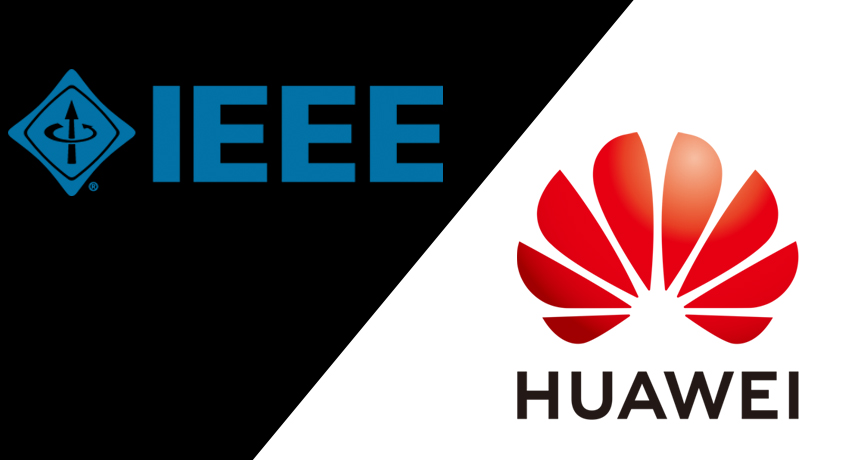IEEE Lifts Restrictions on Editorial and Peer Review Activities
Big news happened after IEEE banning Huawei employees from being reviewers or editors for its peer-review process. In a first announcement IEEE had said that “Compliance with U.S. Trade Restrictions Should have Minimal Impact on IEEE Members Around the World”. However, this decision has resulted the dissatisfaction of a large number of IEEE members, sharing their worries and complains about what had happened.
What happened seemed that it couldn’t stay without a kick-back from China. According to Reuters Chinese computer research body to cut ties with division of U.S.-based IEEE As described in the mentioned article ” In a post published on the Chinese messaging app WeChat, the CCF criticized the IEEE Communications Society (ComSoc), which publishes research reports, for its decision. “The IEEE was once considered an open international academic organization, an academic community of practitioners in the information technology field, with members from all over the world, including China,” the CCF wrote. “But this time we regret to see that its Communications Society (ComSoc) has restricted the activities of its members on the grounds of local laws, which seriously violates the open, equal and non-politicized nature of being an international academic organization.”
The respect and trust to its members, but also its goal in Advancing Technology for the Benefits of Humanity, led IEEE to seek clarification on the extent to which these export control restrictions were applicable to IEEE activities. José M. F. Moura, 2019 IEEE President and CEO, send a personal message to IEEE members informing that “IEEE Lifts Restrictions on Editorial and Peer Review Activities”. Specifically, in his message he said:
 “Last week the U.S. government issued export controls on Huawei Technologies Ltd and 68 of its affiliated companies. In response, IEEE issued guidance on actions required to comply with these controls. We acted promptly because we wanted to protect our volunteers and members from potential legal risk that could have involved significant penalties. As a non-political, not-for-profit organization registered in New York, IEEE must comply with its legal obligations under the laws of the United States and other jurisdictions. We also engaged the U.S. government to seek clarification on the extent to which these export control restrictions were applicable to IEEE activities.
“Last week the U.S. government issued export controls on Huawei Technologies Ltd and 68 of its affiliated companies. In response, IEEE issued guidance on actions required to comply with these controls. We acted promptly because we wanted to protect our volunteers and members from potential legal risk that could have involved significant penalties. As a non-political, not-for-profit organization registered in New York, IEEE must comply with its legal obligations under the laws of the United States and other jurisdictions. We also engaged the U.S. government to seek clarification on the extent to which these export control restrictions were applicable to IEEE activities.IEEE made an updated statement which was published on Monday June 2nd, mentioning that IEEE lifts restrictions on editorial and peer review activities.
Read below the updated Statement
IEEE Lifts Restrictions on Editorial and Peer Review Activities
On Thursday, May 16, 2019, the U.S. Department of Commerce applied export control restrictions to Huawei Technology Ltd. and 68 of its affiliates. IEEE issued a statement regarding compliance and stated if the U.S. government clarified the application of the U.S. Export Administration Regulations with respect to peer review IEEE would provide an update to the IEEE community.
IEEE has received the requested clarification from the U.S. Department of Commerce on the applicability of these export control restrictions to IEEE’s publication activities. Based on this new information, employees of Huawei and its affiliates may participate as peer reviewers and editors in our publication process. All IEEE members, regardless of employer, can continue to participate in all of the activities of the IEEE.
Our initial, more restrictive approach was motivated solely by our desire to protect our volunteers and our members from legal risk. With the clarification received, this risk has been addressed. We appreciate the many questions and comments from our members and volunteers around the world and thank them for their patience as we worked through a legally complex situation.
IEEE offers a wide range of activities and benefits for its members, volunteers and the wider technical community, including sponsoring more than 1,900 annual conferences and events worldwide and providing access to over 4.8 million publications on IEEE Xplore®.
IEEE recognizes that science and technology are a global activity. We are proud of the work our members do around the world and we are dedicated to advancing technological excellence for the benefit of humanity.

